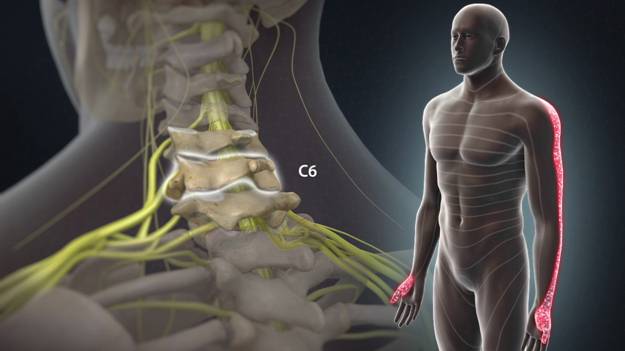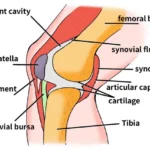Introduction
Nerve pain in the arms, also known as neuropathic pain, can be a debilitating condition that significantly affects a person’s quality of life. It is often characterized by sharp, shooting pains, tingling sensations, and numbness. Understanding the causes, symptoms, and treatment options for nerve pain in the arms is crucial for effective management. This guide provides an in-depth exploration of these aspects, with an emphasis on both medical and non-medical treatments, and answers common questions related to nerve pain.
1. Understanding Nerve Pain in the Arms
What is Nerve Pain?
Nerve pain occurs when there is damage or dysfunction in the nerves that carry signals from the body to the brain. Unlike muscle or joint pain, nerve pain is typically more intense and can manifest as burning, stabbing, or shooting sensations. It can be caused by various conditions, including pinched nerves, diabetes, and injuries.
Common Causes of Nerve Pain in the Arms
- Pinched Nerves: A nerve can become compressed or pinched due to surrounding bones, muscles, or other tissues, leading to pain. Common conditions include carpal tunnel syndrome (compression of the median nerve), cubital tunnel syndrome (compression of the ulnar nerve), and thoracic outlet syndrome.
- Injuries: Trauma to the arm, such as fractures or dislocations, can damage nerves and lead to neuropathic pain.
- Chronic Conditions: Diseases like diabetes can cause peripheral neuropathy, leading to nerve pain in the arms. Inflammatory conditions like rheumatoid arthritis can also contribute to nerve irritation.
2. Symptoms of Nerve Pain in the Arms
Nerve pain in the arms presents with a variety of symptoms that can vary in intensity and duration:
- Pain: Often described as sharp, shooting, or burning, the pain may travel along the arm and into the hand.
- Tingling or Numbness: A “pins and needles” sensation is common, especially in the fingers or hand.
- Weakness: Muscle weakness in the arm or hand may occur, making it difficult to perform everyday tasks.
- Sensitivity: The affected area may become hypersensitive, reacting strongly to light touch or temperature changes.
3. Diagnosis of Nerve Pain
Diagnosing nerve pain involves a combination of clinical evaluation and diagnostic tests:
- Physical Examination: A thorough examination to assess strength, sensation, and reflexes can help pinpoint the affected nerve.
- Electromyography (EMG): This test measures muscle response to nerve signals and helps determine the extent of nerve damage.
- Nerve Conduction Studies (NCS): These tests measure the speed and strength of signals traveling through the nerves and are often used alongside EMG.
4. Treatment Options for Nerve Pain
Non-Surgical Treatments
- Medications: Anti-inflammatory drugs like NSAIDs can help reduce inflammation and pain. For more severe pain, anticonvulsants or antidepressants, which alter nerve signal transmission, may be prescribed.
- Physical Therapy: Targeted exercises can help relieve pressure on nerves and improve muscle strength. Techniques like nerve gliding (or nerve flossing) are particularly effective in reducing pain and improving nerve mobility.
- Lifestyle Modifications: Adjusting activities to reduce strain on the affected arm can help manage symptoms. Ergonomic adjustments, like changing the setup of a workstation, are often recommended.
Surgical Treatments
Surgery is considered when conservative treatments fail. Procedures might include decompression surgery, where the surgeon relieves pressure on the nerve, or nerve repair if the nerve has been severely damaged.
5. Alternative and Complementary Therapies
- Acupuncture: This traditional Chinese medicine technique may help alleviate nerve pain by stimulating the nervous system and increasing blood flow to the affected areas.
- Chiropractic Care: For some, chiropractic adjustments can relieve nerve pain by correcting misalignments that may be putting pressure on nerves.
- Mind-Body Techniques: Practices like yoga and meditation can help manage chronic pain by reducing stress and improving overall well-being.
6. Preventing Nerve Pain in the Arms
Preventive strategies focus on reducing the risk factors associated with nerve compression and irritation:
- Maintain Good Posture: Proper posture can prevent compression of nerves, especially in the neck and shoulders.
- Regular Exercise: Strengthening muscles and improving flexibility can help support the nerves and reduce the risk of pinched nerves.
- Ergonomic Adjustments: Ensure that workstations are set up to minimize strain on the arms, especially during repetitive activities.
7. Frequently Asked Questions
Q1: How can I tell if my nerve pain is serious?
- A: Nerve pain that is accompanied by muscle weakness, persistent numbness, or loss of function should be evaluated by a healthcare provider as soon as possible.
Q2: Can nerve pain go away on its own?
- A: Mild cases of nerve pain may improve with rest and conservative treatment, but more severe cases often require medical intervention to prevent permanent damage.
Q3: What is the best treatment for nerve pain in the arm?
- A: Treatment varies depending on the cause but typically includes a combination of medication, physical therapy, and lifestyle modifications. In some cases, surgical intervention may be necessary.
Q4: How can I prevent nerve pain from recurring?
- A: Regular exercise, proper posture, and ergonomic adjustments are key to preventing the recurrence of nerve pain. It’s also important to manage underlying health conditions like diabetes.
Q5: Are there any long-term complications of untreated nerve pain?
- A: Yes, untreated nerve pain can lead to chronic pain conditions, permanent nerve damage, and loss of function in the affected limb.
Conclusion
Nerve pain in the arms is a complex condition that requires a comprehensive approach to diagnosis and treatment. By understanding the causes, symptoms, and treatment options, individuals can better manage their condition and improve their quality of life. For persistent or severe cases, it is important to seek professional medical advice to prevent long-term complications.





